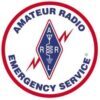DIS-103 Planning effective exercises
DIS-103Planning effective exercises This material is adapted from ARECC EC003, Learning Unit 7. The learning unit is based inpart on a QST article by George Washburn, WA6YYM, District Emergency Coordinator andChief Radio Officer of Santa Clara County, California. IntroductionDrills, exercises, tests. By any name, periodic exercises are used to evaluate the effectiveness of training and … Read more
